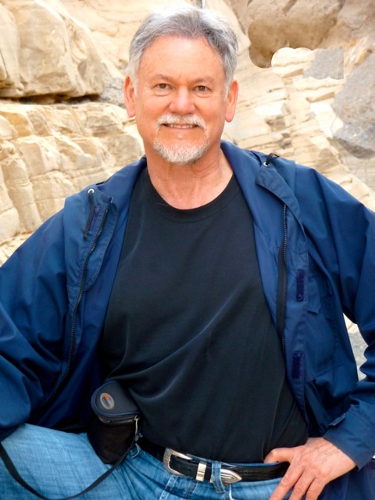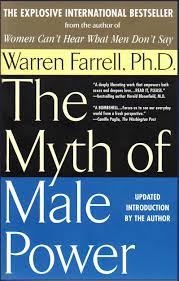- Why Did Warren Farrell Get Involved With The First Feminist Organization?
- Has Feminism Been A Factor In Causing School Shootings?
- What Was Betty Friedan, The Feminist Pioneer Actually Like?
Full Interview Audio

Personal Info
Hobbies and Interests:Playing tennis, Yoga, Hiking
Sports Teams:SF 49’ers
Favourite Books:
- Gandhi: The Man, His People, and the Empire by Rajmohan Gandhi
- The Hero with a Thousand Faces by Joseph Campbell
Most Influenced By: Ghandi
Twitter: http://twitter.com/warren_farrell
Facebook: http://facebook.com/DrWarrenFarrell
LinkedIn: http://linkedin.com/in/warrenfarrellblog
Company Website: http://warrenfarrell.com
Interview Highlights
This is a condensed, lightly edited transcript of an audio interview. The full audio is available and highly recommended. The interviewee may post clarifications in the comments.
Adrian Bye: Today we’re here with Warren Farrell who is a well-known author and is here to discuss some of his work over the years, particularly around the topic of feminism. Warren, thanks for joining us.
Warren Farrell: I’m looking forward to it, Adrian.
Adrian Bye: You are one of the pioneers of second-wave feminism. Tell us about that historically.
Warren Farrell: I guess that’s true. My history with feminism began in the late sixties. I was doing my doctorate in political science at New York University and the women’s movement surfaced. My former wife and I went to some of the rallies and she said: Warren, please stay out of this, there is a lot of men hating here. I said, yes, I see that, but I also see that they are really encouraging a reduction of stereotyped roles, and I think we really do need to move from rigid roles. Men and women have a lot more flexibility than society has allowed them to do. We went back and forth on that, and then one day she said to me, I see that when you are talking about these issues there is a fire in your belly that I don’t see as much of when you talk about political science or politics in general. If you want to go ahead and do that, if that’s where your passion is, go for it. And I did. Long story short, the people in the National Organization for Women in New York City, which is where we lived, were about to kick men out of NOW in New York City and it was becoming a big debate in NOW as to whether or not that should be done. The New York City NOW negotiated with national NOW that they would try to do something that would incorporate men and see if it worked. They asked me if I were to start men’s groups on the Thursday evenings on which they had women’s groups once a month. I did and those men’s groups went really well. Then they asked me if I’d run for the Board of Directors in the National Organization for Women in New York City, the New York City chapter. I did that and I served the next three years on the Board of NOW in New York City.
Adrian Bye: How were things back then? For example, my mother has talked about feminism as something very important that has enabled her to work and have a career. These things probably wouldn’t have happened without feminism, or so it seems. Is that the case? Were women’s roles really that rigid that they couldn’t do anything? We had Margaret Thatcher, we had Marie Curie, there have been a lot of women that have been successful.
Warren Farrell: Imagine a gentle young man in the fifties saying, “You know what I want to do when I grow up? I want to be a full-time dad.” It’s not that he couldn’t have become a full-time dad. He might have found a woman somewhere that would have accepted and married him as a full-time dad. But most boys would be discouraged by the resistance. Similarly, we have missed the opportunities for millions, probably billions of women with enormous talents who were frustrated by being confined into a narrow dimension of possibilities. If we believe in maximizing human potential, it is all in our self-interest to encourage men to discover the part of themselves that might want to be a full-time dad and to encourage women to be the part of themselves that might not be so strong and so powerful that they overcome all the odds and become the Madame Curies or the Margaret Thatchers. But we don’t wanna make it so difficult so that only one in ten thousand survives the process.
Adrian Bye: Are you aware of the anthropology research by Margaret Mead?
Warren Farrell: Sure.

Adrian Bye: I imagine her work was fairly influential on second-wave feminism, right?
Warren Farrell: It was. It was not actually very accurate, as it turns out.
Adrian Bye: That’s exactly what I wanted to ask you because this angry white guy Derek Freeman in ANU in Australia went and spent forty years researching it and found out that in fact what Margaret Mead built her career on was not right. And what this fundamentally was about was being able to modify culture in ways that superseded genetics. And Derek Freeman’s comment is, genetics drives culture, not the other way around.
Warren Farrell: Yes, Margaret Mead was partially wrong, and Freeman was partially wrong in my opinion because of what we now know from neuroplasticity and neuroscience. Neuroscience teaches us that genes run very deeply and powerfully, and neuroplasticity research teaches us that culture turns on or turns off genes. We all have enormous genetic potential in us that is turned on or turned off by what happens to us in our cultural experiences. When people used to ask me what is it, nature or nurture, my answer was, “yes”– it’s nature and it’s nurture. Nature influences nurture and nurture influences nature. We now know that this is much more accurate than I believed it was, or anybody believed it was back when I was saying that in the seventies.
Adrian Bye: It is a complex interaction between nature and nurture and the balance is finding which way it goes. It’s going to be different for different things. For some things it will be ninety percent nature and ten percent nurture, and for others it’ll be ten percent nurture and ninety percent nature.
Warren Farrell: Correct. Adrian, it’s extremely important to never let the “it’s nature” argument be used to discourage someone from developing her or his potential. Capitalism succeeds most when people are not trapped by self-fulfilling fears about the limits of their nature. I don’t want to say to a son, unbecome what I sense you are wanting to be because that’s not natural for you. What’s natural for him will evolve when I give him permission and freedom to be what he wants to be, but I also have responsibility as a parent to educate my daughter and son as to the trade-offs within the framework of cultural confinements of the times (think Mad Men).

My role in the world is taking away the barriers that prevent boys and girls from being whatever they wish to be when they grow up. The feminist movement did an enormous amount of good. It started out liberal and then it evolved into bureaucracy that became concerned with political correctness as it has in the last twenty, thirty years. Human resources and women studies have only allowed the female perspectives, so we no longer have a dialogue between the genders (not that we ever did!). We have basically not a battle of the sexes but a war in which only one side has shown up. Women have been firing the shots and men have been putting their heads in the sand and hoping the bullets would miss. That is not a dialogue.
What I would like to see is not a women’s movement that is demonizing men and undervaluing the family, or a men’s movement that is demonizing women and undervaluing their potential. I’d like to see a gender transition movement in which both genders are helping each other, and all facets of society are helping each other move from the rigid roles of the past to more flexible roles in the future.
Adrian Bye: The understanding of genetics that we have today, a lot of it is missing because academia is left wing. Topics around race and gender are not allowed to be researched. I think we’re not getting the full story because they don’t want to disrupt the feminist revolution. I’m curious as to your thoughts on this.
Warren Farrell: There is a lot of truth in what you’re saying. The left and the right need to learn from each other. What the left has done is a big mistake. In the universities they cut out dialogue. They’ve turned it into a monologue. They turned it into people who are taking the genetic perspective or the male perspective and they’ve turned them into devils. They demonize men and undervalue the family.
Adrian Bye: My firm believe is, exactly what you’re saying, in academia we have limited the right, the men’s voice is missing, that there in fact is a lot of weakness in the system because of this.
Warren Farrell: Absolutely. The very essence of what universities are supposed to be about is open dialogue. And the very essence of what a democracy is supposed to be about is open dialogue. The very essence of what nature is all about is we see that children are raised best when there is a significant amount of father and a significant amount of mother. It’s almost as if nature created this checks and balances between father and mother. The university has lost checks and balances in the gender dialogue. There is no gender dialogue. It’s women’s studies and gender studies that theoretically are open to both genders. The only discussions of men are within the framework of the conditions of the feminist movement. And so we have a gender monologue. And that’s extremely dangerous because it’s not only in the universities where it exists, it also exists in the divorce courts. Most judges and most people agree that children after a divorce are best raised by both parents. But when a mum objects to the father being involved it takes him a 100,000 to 150,000 or more in money to fight her resistance to this involvement. And that means that father involvement when a mother resists after divorce is confined to only the wealthy dads. And that’s a huge mistake that we’re making because particularly in poor areas children need their father.
Adrian Bye: I’ll ask one of the controversial questions, not that there is many in gender issues. Since the rise of second-wave feminism we have a lot of school shootings. Do you see a correlation?
Warren Farrell: No, the things that I see as the biggest contributors to school shootings are first boys. Every school shooting or serial killings except for one since the 80s has involved boys, so people often talk about; Is it gun control? Is it mental health? Is it media, violence in the media? Is it feminism? But our daughters and our sons are both exposed to the same amount of feminist influences, our daughters more so. Our daughters and sons both either do or don’t have guns in their home. Our daughters and sons both have mental health issues, and yet it’s our sons that are doing the killing. So the real question that needs to be asked is, What is happening to our boys? Why is this the first time in US history and in the history of most industrialized nations that boys will have less education than their fathers? Why is it that boys’ IQs are fifteen points lower than they used to be? That is not just in the United States, but in Canada and most industrialized nations.

Adrian Bye: To come back to the question on shootings; you don’t feel that there is a relationship? You think that is something unrelated.
Warren Farrell: The greatest relationship is the lack of attention to boys in the culture and what’s happening with boys. I don’t think there should be gun control, I think there should be gun elimination.
Adrian Bye: Something that is very interesting to me is what was it like to work with Betty Friedan and Gloria Steinem and these people? One of the things that we get from feminism is that we must have empathy. I get the impression that these people were not particularly easy people to get along with.
Warren Farrell: Well, on a scale of one to ten, I would say Betty is somewhere between a zero and one in terms of negative, zero being the least easy to get along with. And Gloria was somewhere between a nine and a half and a ten. Gloria is an extraordinarily generous woman towards both women and men, even though her political views are far more rigid than Betty Friedan’s were. Betty was very condescending toward other women, less condescending but still some toward men. Unless someone was at her status level, or close to it, or could do her some good, she was an extremely condescending person. Most people knew that about her. On the other hand, Gloria was exactly the opposite of that. She was very acknowledging of people, brought them into conversations, made sure they weren’t interrupted. She was really a gem of a person.
Adrian Bye: We are just about out of time. Is there anything that you would like to bring up which we haven’t discussed?
Warren Farrell: Yes. When I thought about MeetInnovators, one of the questions I was thinking about addressing was, What is the most important innovation that we could have for the future? And if I were to answer that question I’d say it’s training boys and girls to communicate with each other at a very early age. That communication training should be part of our school system. We made a huge leap forward in communication skills with Active Listening. But what no one is doing anywhere in the world that I’m aware of is training people who are criticized to be able to escape our normal biological patterning of responding to criticism by becoming defensive. That is, historically and biologically, when we are criticized by another kinship network or tribe, we fear that that might mean that they will be the enemy. And therefore we get up our defenses. Or we would kill the enemy before the enemy would kill us. And therefore our inheritance is to be extraordinarily sensitive to any form of personal criticism, particularly from a loved one where we feel most vulnerable. So we tend to respond to that criticism by becoming defensive. While that was very useful for survival, it is very dysfunctional for love.
When we are criticized, what the person criticizing needs is to feel that we are there supporting what their feelings and their fears are and we are first able to listen to them. When a person criticizing us does feel listened to, they feel more loved by us. When they feel more loved by us, they feel more love for us. But our brains do not associate personal criticism by loved ones with an opportunity for love.
Part of the work that I do with men and women now is to realize real innovation for the future is not just about the substance of male and female issues, it is about getting men and women, parents and children, Israelis and Palestinians, everyone who disagrees to really hear each other and to not do what we usually do when attacked: distort the words of the attacker, and then sidestep the attack and counterattack. If we can bring that about in the next generation, that would be the mother of all innovations.
Adrian Bye: Excellent. Warren, thank you very much for doing the call.
Warren Farrell: You are very welcome, Adrian. It was a real pleasure talking with you.










